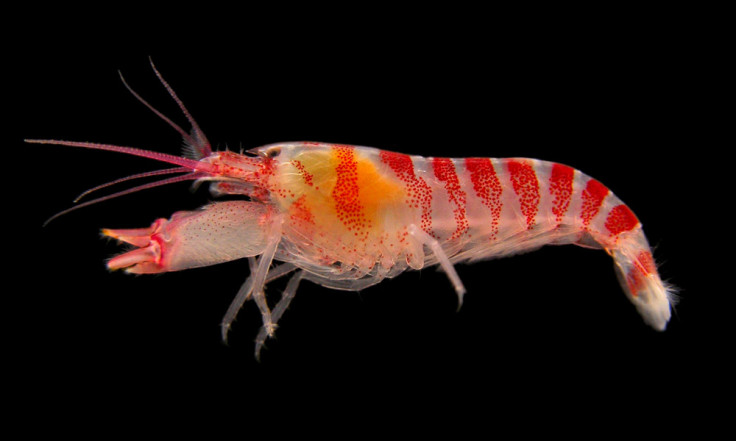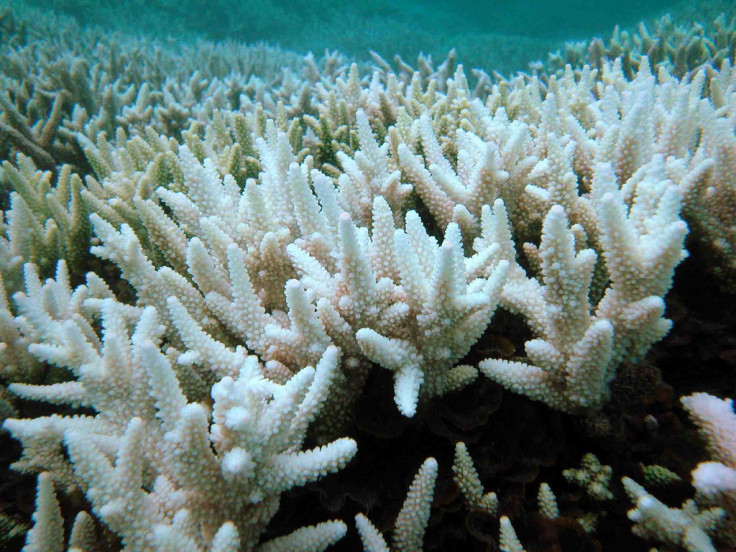Ocean acidification makes snapping shrimp quieter posing risk to coral reefs and fish

One of the noisiest animals to live in the ocean will become much quieter as increasing ocean acidification gets worse. Researchers from The University of Adelaide, Australia, say the snapping shrimp will subdue its 'ticking' as more carbon dioxide is pumped into earth's atmosphere.
The research, published in Proceedings of the Royal Society B, says that many fish use noises from the reef-dwelling snapping shrimp to find their way home. This could mean that fish become lost at sea, and cause populations of coral reefs to diminish.
"Ocean acidification will likely change marine ecosystems within this century," the authors wrote. "Coastal marine sounds are largely of biological origin, hence, potentially vulnerable to ocean acidification.
"The most common sources of marine biological sounds are snapping shrimp snaps, sea urchin raspings and fish vocalisations. Snapping shrimp (family Alpheidae), are the most ubiquitous and noisy soniferous animals in coastal ecosystems."

This snapping is used for hunting and communication by the shrimp. The sound can reach around more than 200 decibels – around the same as a supersonic Concorde jet.
Analysing snaps
The researchers recorded the sounds made by snapping shrimp next to CO<sub>2 vents in Italy and New Zealand. Current ocean acidification in New Zealand varies from the global average, right up to the high acidity projected by the turn of the century.
Snapping shrimp were also tested in the lab for two to three months, to analyse how they reacted to various levels of pH. The scientists tested them from current global averages for ocean acidity, all the way up to future projections.
Their results showed that both the intensity and number of snaps from the shrimps were reduced with more acidity. However, the researchers are still not sure what it is about the acidity that causes this slowing number of ticks.
They may become lost at sea
Fish, invertebrates and larvae, which rely on these snaps for navigation, will be affected if the number of snaps is reduced in the future.
"They may become lost at sea or take longer to pick up these cues as they drift with ocean currents," Ivan Nagelkerken, researcher working on the study, told New Scientist. "This may reduce the number of larvae that safely arrive at coastal reefs, with consequences for the replenishment and sustainability of their populations."
This research adds to the list of potential damaging features associated with ocean acidification. Other consequences of adding carbon to the ocean include coral bleaching, and the death of millions of molluscs.
Ocean acidification is caused by carbon in the atmosphere entering the deep sea. This reduces the alkalinity of the water, and is believed to cause a number of negative impacts.
© Copyright IBTimes 2025. All rights reserved.






















